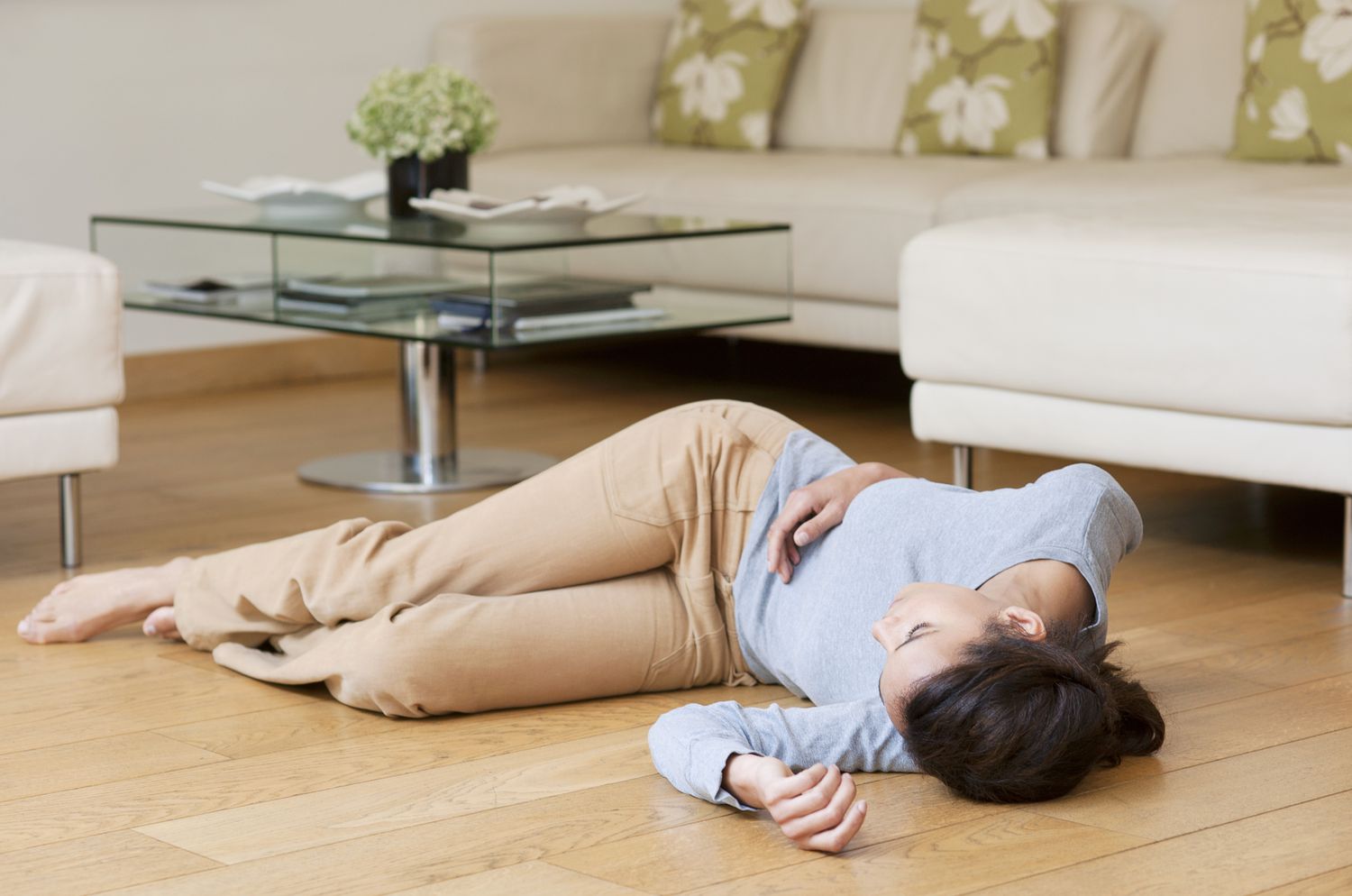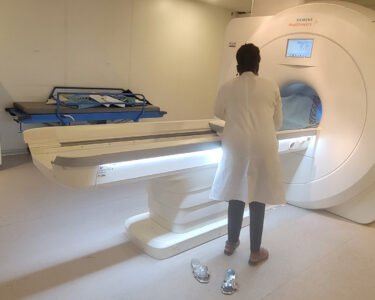Faints (Vasovagal syncope)
Fainting (also called syncope) is when you suddenly lose consciousness or ‘black out’ for a few seconds.
What happens during fainting?
When you are upright, standing or sitting still, blood drops under the influence of gravity down into your legs. With more blood held in your legs, less blood returns to the heart, and the amount of blood the heart can pump around the body diminishes, and the blood pressure in the circulation will begin to drop.
Usually the body counteracts this and tries to maintain the blood pressure, by constricting the blood vessels in the legs and abdomen, and by making the heart beat faster. In some people, these attempts to maintain the blood pressure are ineffective in the specific situations when the fainting reaction occurs
So when you begin to feel sweaty and faint this is because instead of constricting, some blood vessels get even wider (“vaso-dilate”), and the heart instead of speeding up may slow down or even stop momentarily. The result of this faulty response is that the heart cannot pump enough blood to the brain, and the lack of oxygen reaching the brain then makes you pass out. This is called vasovagal syncope. (Syncope, pronounced sin-co-pee, is the Greek / medical term for a blackout caused by not enough blood reaching the brain).
If you faint to the floor, or lie down before fainting (and if possible raise your legs), blood immediately returns to your heart, which can then pump blood to your brain again, and you regain consciousness. If you stay sitting up, your brain will remain starved of oxygen for longer, and during your faint you might even have jerky movements, that can be misinterpreted as a fit. Some people are incontinent during a profound faint. Again this is not evidence that the collapse was a fit.
Feeling ill and nauseous after a faint is very common, and is part of the digestive “vagal” activation, which often also makes you feel washed out for a time after a faint.
Why this fainting reaction happens more often to some people than to other is unknown. Some people seem to have more powerful “vagal” reactions in certain situations.
When does a fainting response occur?
Most people learn which circumstances might make them faint. People who are prone to fainting often develop symptoms in the following situations (which are all times when the vagal system is more active):
- During emotional circumstances, or with medical/dental procedures.
- When in pain (especially abdominal pain, or during a period).
- During or directly after a meal, especially if you haven’t eaten for a while.
- After a long period of standing still (in a queue or at a reception).
- After sitting very still, especially then standing.
- In warm surroundings (in a restaurant, warm weather, standing in a hot shower or sauna).
- Directly after exercise.
- When you have not had enough rest.
- During illness, nausea or fever.
Symptoms of vasovagal fainting
As the vasovagal fainting reaction begins, there is often light headedness, ringing in the ears, and feeling sweaty and nauseous. You may start yawning, and others may notice you have gone grey and sweaty. There is often a desire to get some fresh air (“air-hunger”), or to go urgently to the toilet (but standing up to go outside or to the toilet can then bring on the faint!).
As the blood pressure falls further, there is visual disturbance with black spots in front of the eyes, a feeling of becoming distant, and then one faints. People often recognize the symptoms, but sometimes the same people get very little warning and can pass out more suddenly.
During a faint, if someone feels your pulse it will usually be slow (during a seizure or fit it is usually fast). Some jerky movements may occur, especially if the person is still sitting or slouched with their head higher than their body.
When coming round after a faint, the person often feels awful, sickly and may vomit, or even have diarrhea. Often there is prolonged fatigue after a faint.
Symptoms that are more worrying, and suggest the collapse may not be just a simple faint are:
- Chest pain, severe breathlessness or severe headache before collapsing
- Fitting with stiffness and/or jerky movements immediately on collapsing
- Not breathing or going blue whilst unconscious
- Prolonged unconsciousness, lasting more than 5-10 minutes once lying down.
Advice
Being susceptible to fainting is not a serious disease, but can be very frightening and frustrating to you and those around you. With advice and understanding of the problem, most people can avoid or minimize most faints. Worrying will only tend to make it worse.
It is important to understand what is happening to you during a faint. Ask your doctor for more explanation if you don’t fully understand what fainting is or if you have any more questions. Also, explain your faints to your family, so they can help and support you.
Try to work out in which particular set of circumstances you are most likely to faint Then try to avoid these sets of circumstances (eg stressed, long day, little food or drink, then out late to hot restaurant, beginning to relax, food arrives…)
When standing still (eg in queues), move up and down on the balls of your feet, so your calf muscles squeeze blood back up to your heart, or stand cross-legged (so you use more muscles to stay up, and stimulate your sympathetic system to keep up your blood pressure).
When standing or sitting still, occasionally clench tightly your thigh and buttock muscles for 10-15 seconds (this also keeps your sympathetic system active).
Try to wear elasticated support socks (“Flight Socks”) to prevent pooling of blood in the legs.
Ensure you drink enough fluids (tea, coffee and alcohol don’t count), especially on hot days, or if you have been exercising or have had diarrhea or vomiting. Your urine should be clear. Avoid alcohol if you are hot – both heat and alcohol relax your blood vessels, lowering your blood pressure.
”Isotonic” fluids can be especially helpful – these are “sports” drinks that contain some salt and minerals, to help keep your circulation properly hydrated. But avoid the ones with caffeine.
Avoid large meals on an empty stomach.
If you recognize the start of any symptoms of the fainting reaction, try to lie down immediately, ideally with your legs elevated. Sitting bent forward with your head down between your legs may help, but is not ideal as your legs remain down, and though abdominal compression might help, it might also worsen the vagal reaction, prolong your symptoms and delay recovery.
Remember, it is better to decide to lie down and remain conscious, than to pass out and wake up on the floor in a mess, surrounded by anxious onlookers.
Once you begin to feel faint, do not stand up quickly, or stand still (eg outside for fresh air)
If you faint, do not try to sit up or get up quickly when you come round – you may faint again!





